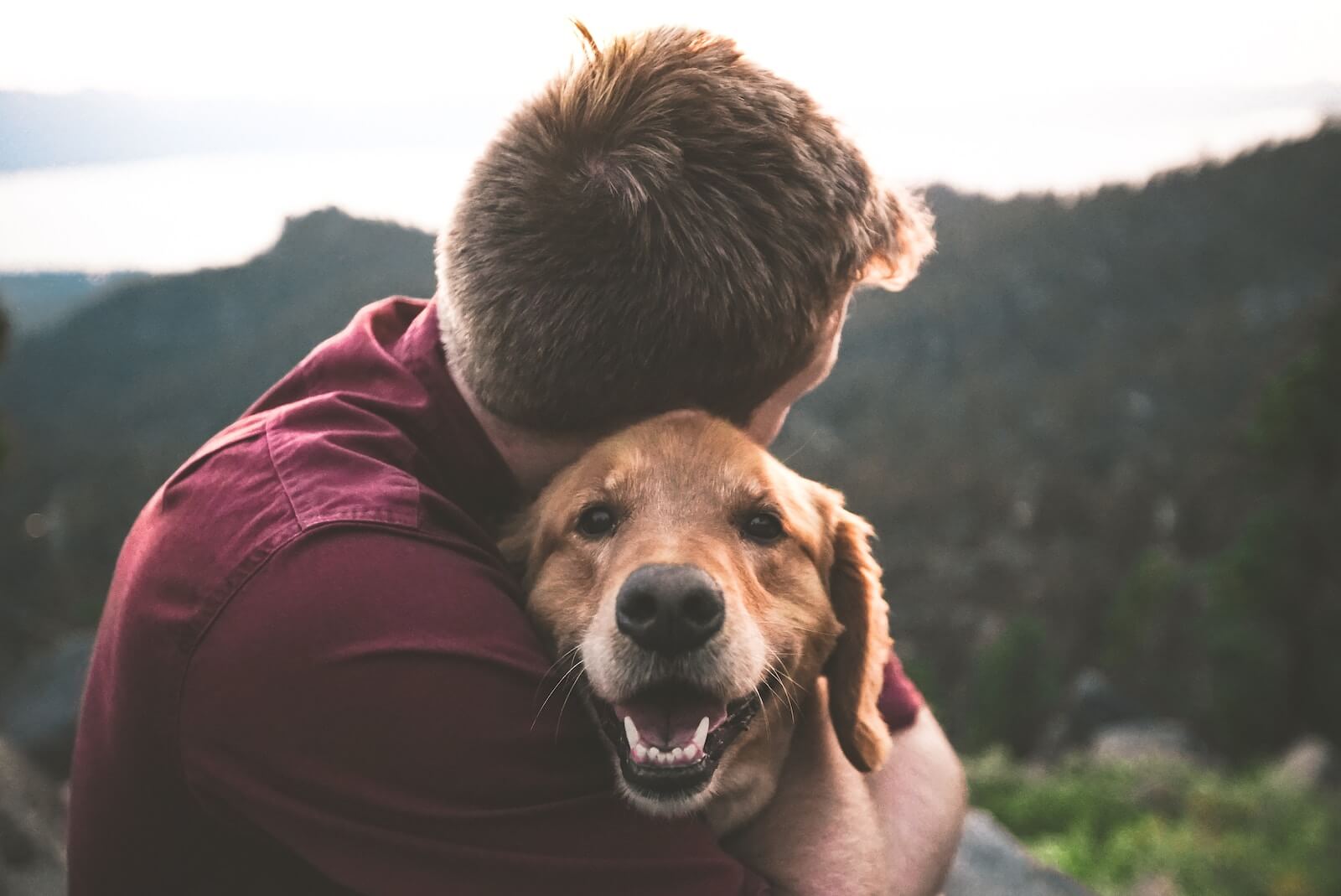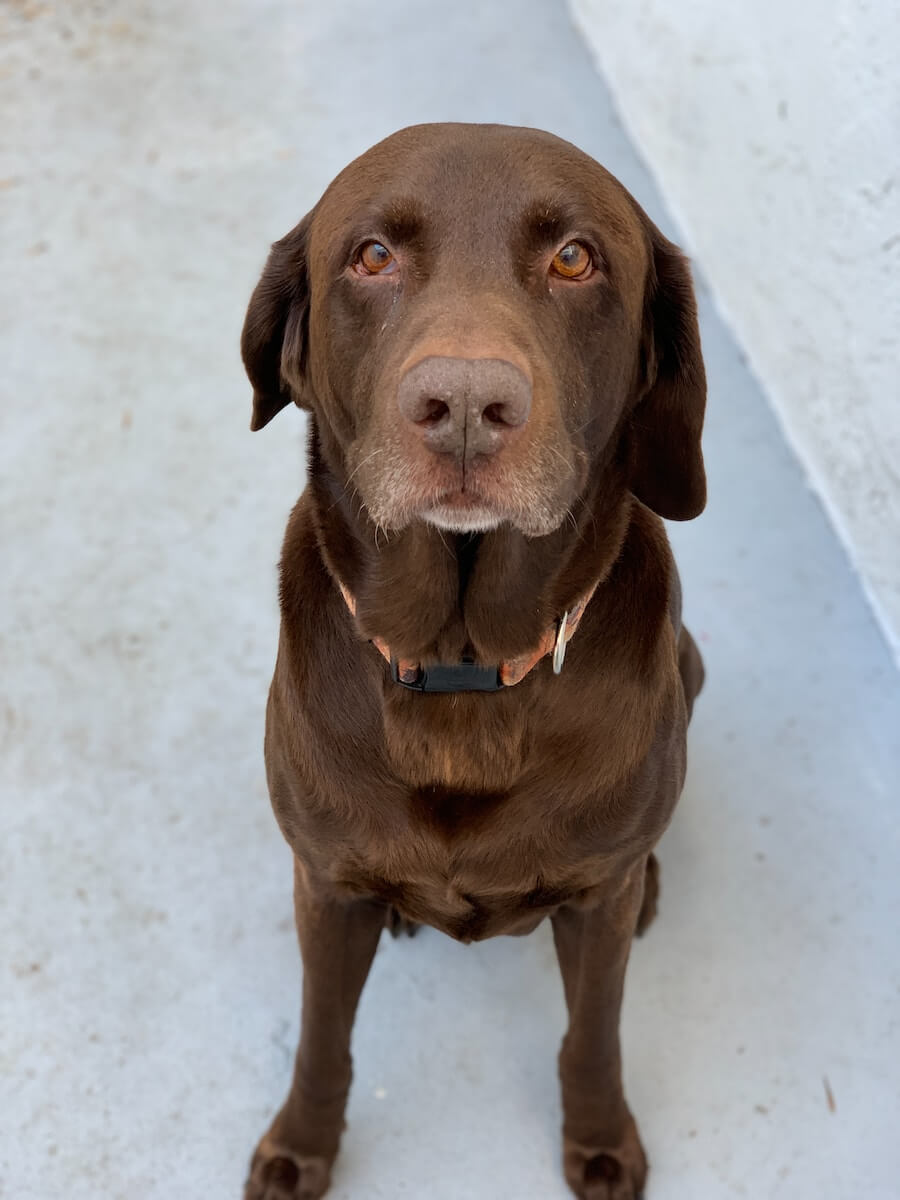Emotional support animals (ESA) are not considered service animals (like, for instance, guide dogs for the blind) under the American Disabilities Act (ADA) since they lack special training. Nevertheless, they can do wonderful things for people struggling with conditions like anxiety, PTSD, or autism, to name a few. While emotional support turkeys are not unheard of, dogs are the ideal ESAs because they are affectionate, adaptable, and trainable. As a dog with a job, an ESA dog needs to be friendly, loving, and highly intelligent. Not all breeds meet the ESA requirements. Of course all dogs love their owners, but some are too independent, nervous, or stubborn to provide cuddles when needed or help their owner meet new people. So which breeds should you consider for a canine therapist? StudyFinds consulted the experts to create a list of the best dogs for emotional support.
It turns out that more people may benefit from an emotional support pup than you might think. Anxiety is on the rise among Americans. According to a survey, a shocking one in five respondents say they feel anxious so often that they believe they are dealing with an undiagnosed anxiety disorder. But that’s not all: the average American experiences five anxious moments every day. And according to a concerning report, 2.6 million American children — more than one in every 20 — were diagnosed with anxiety and/or depression between 2011 and 2012. The report further reveals that anxiety in children and adolescents increased in the United States, while depression diagnoses have remained at the same (nevertheless concerning) levels.
The good news: Researchers at the University of Florida confirm what dog owners have always known — dogs are an excellent anxiety “remedy.” “Our research shows that having a pet dog present when a child is undergoing a stressful experience lowers how much children feel stressed out,” says Darlene Kertes, an assistant professor in the Department of Psychology. “Children who had their pet dog with them reported feeling less stressed compared to having a parent for social support or having no social support.” And yes, “Dr. Dog” helps adults as well. Researchers from Washington State University say support dogs can seriously help college students find relief from stress and anxiety.
If you think a dog is just what you or a loved one need to cope better, you will need an ESA letter from a practicing Licensed Mental Health Professional (LMHP). This will protect your ESA in case your home doesn’t allow pets. Another step is of course picking the right dog. For this purpose, StudyFinds compared information from ten expert websites to build our list of the top five dogs for emotional support (of course mutts with the same traits as the top 5 “work” just as well!). Do you have any ESA experiences you’d like to share? Please let us know in the comments!

The List: Best Dogs for Emotional Support, According to Experts
1. Tie: Labrador Retriever AND Golden Retriever
Since both breeds are frequently used as service dogs, seeing them at the top of our list comes as no surprise. Ten out of ten experts recommend both breeds as emotional support dogs. “The Labrador Retriever is often considered to be a great emotional support dog. Known for their happy, laid-back nature, they are one of the most popular pet breeds for a reason. They make excellent family dogs and can provide emotional support for children and adults alike,” writes Barkbus.

“It should be no surprise to anyone to see our beloved Labradors topping the list,” says LabradorTrainingHQ about their favorite support dog breed. “They are at the top of most lists of working dogs. Intelligent, gentle, and loving, they are ideal emotional support animals.” Their second pick, golden retrievers, are “very similar to Labrador Retrievers in their temperament, which means they too are ideal to act as Emotional Support Animals, as well as a variety of other working roles.”

“These intelligent, confident and incredibly friendly dogs provide much support to their owners and are a true family favorite,” say experts from Country Living. “Their affectionate nature and soft coats make them a therapeutic four-legged friend. Similarly to Labradors, they have long been fantastic therapy dogs, providing emotional support to their owners.” Please note that both breeds are active dogs that need plenty of exercise!
2. Cavalier King Charles Spaniel
The Cavalier King Charles spaniel is as sweet and friendly as a retriever but needs less exercise and is better suited to sit on your lap than our number ones. They are Reader’s Digest‘s top pick for an ESA since they “were initially created to be companions dogs, so their genetics run deep as warm-hearted comforters. They are undeniably cute, well-mannered, and petite in size, making them great apartment dogs.”

And they are sooo snuggly. According to The Spruce, “the Cavalier King Charles spaniel is like a living stuffed animal. These dogs love to cuddle and typically have a friendly temperament. They’re often referred to as the ‘comforter spaniel.’ They’re usually just as happy to cozy up with their favorite humans as they are to join them for a pleasant walk.”
PetHelpful even claims that “the King Charles spaniel was originally bred as a therapy dog, and they continue to excel at helping and supporting the emotional needs of humans,” Further, “the Cavalier King Charles spaniel is easy to train because this breed is eager to please its owner.”
3. Corgi
The late Queen was onto something! “Corgis are happy, playful, easy-going dogs, making them a great choice for an emotional support dog,” says Reader’s Digest‘s expert. “Watching a Corgi play can bring entertainment and joy to anyone. Seeing them zip around with their short legs and rotund hind ends can easily bring a smile to your face.”

ESA Doctors has a similar sounding view of the corgi: “Playful and affectionate, Corgis are a mix of obedient and adventurous. They’re very much like an adorable toddler, full of laughs and eager to learn about the world. Because of their size and personality, Corgis make excellent emotional support animals. They’re loyal to their owners and are even-tempered, rarely whining or growling. Originally bred to be herd dogs, Corgis are also known for being easy to train.”
While The Spruce agrees with this assessment and add an important consideration: “Corgis are fairly active dogs, so they’re not right for every condition. They can be suitable for owners who prefer to take their dogs with them when out and about, as that will help channel the corgi’s energy.”
4. Poodle
If regular trips to the groomer aren’t a dealbreaker, the sensitive poodle is a wonderful ESA. “Poodles are an incredibly smart breed that bond closely with their owner. Their high level of intelligence means they’re very easy to train, a valuable quality in an ESA,” states Canine Styles.

“Poodles get a reputation as being a bit snobby and high maintenance thanks to Hollywood, but they are, in fact, one of the most intelligent and affectionate dog breeds,” explains LabradorTrainingHQ. “They are also very good at reading people and picking up on their emotions. […] However, they do require a good amount of grooming as their coats can easily become knotted and […] need to be trimmed regularly.”
An additional benefit of the breed is that “poodles come in three sizes, toy, miniature, and standard (the largest size),” writes PetHelpful. “The AKC recognizes all three sizes, although there are some regional kennel clubs with their own standards for each type. Although there are many varieties of poodles, including ones with long coats or short coats, all types of poodles have curly hair.”
5. Yorkshire Terrier
These guys come in only one size, and that’s lap size. “Yorkies are the sweetest of the sweet lap dogs. Tiny little things, they don’t require a huge amount of space or exercise, which makes them a great choice for owners who live in apartments and can’t do lots of exercise to keep their pup healthy,” says Canine Styles.

Small size can be a big plus for an ESA: “In addition to being one of the cutest lap dogs, the Yorkie is a blue-chip candidate as an emotional support dog for many reasons. For starters, Yorkies are portable. They’re petite puptarts at just five to seven pounds and eight inches tall — perfect for when you need a spunky and confident sidekick to help you navigate social situations that make you feel uneasy.”
The Spruce provides the final verdict on the Yorkie as an ESA: “What Yorkies lack in size they make up for in confidence and affection. They expect lots of attention, but they give it back tenfold. They’re easy to travel with, which is good for people who require their emotional support animal to accompany them on trips. And they tend to adapt well to change.”
You might also like:
- Best Dog Breeds For Families
- Best Dog Breeds For Seniors
- Best Hypoallergenic Dog Breeds
- Best Dog Breeds For First-Time Owners
Sources:
- Reader’s Digest
- LabradorTrainingHQ
- The Spruce
- Canine Styles
- PetHelpful
- Fast ESA Letter
- Barkbus
- ESA Doctors
- Country Living
- A-Z-Animals.com
Note: This article was not paid for nor sponsored. StudyFinds is not connected to nor partnered with any of the brands mentioned and receives no compensation for its recommendations. This post may contain affiliate links.

Shetland Sheepdogs are some of the best emotional support dogs and therapy dogs. Their beautiful soft coats and family friendly dispositions are perfect for the work. I have had 2 Sheltie support dogs and am working to train a new one. I would love to see the Sheltie get some of the love for how versatile and loving they are.
I suffer from PTSD after going through sexual abuse at the hands of my primary school teacher and then years later a car accident involving a drunk and drugged driver.
I am looking at getting either a Welsh or Pembroke Corgi. Can anyone tell me if these breeds make excellent ESA dogs?
I personally disagree. Chihuahuas and boston terriers should definitely be listed. They are lovable, faithful companions. I love mine dearly. Good therapy dogs as well.
Yea my baby so sweet
I have a Rottweiler as an ESA. They are amazing, sensitive dogs. He immediately reacted to my panic attacks since he was a puppy. I know they have a bad reputation, but I’ve owned two and they are really fantastic dogs.
Rottweilers also make great EMAS I’ve owned 3 I’m a injured worker been on SSI Disability for 20yrs and they’ve helped me greatly their known for being guard dogs they are also THE sweetest K-9″s on the planet they’ll be lap dogs if you let them
“ESA” was gotten rid of by the ADA on July 1 2017 because they have NO training! Anyone trying to pass their animal as an ESA is commiting Fraud and can face a fine up to $5,000.-10,000. And/or six months in jail.
Stop giving incorrect information!
You are making it harder for people with real disabilities!
ESA are emotional support animals. There’s no real training for them and any animal can serve as an ESA. I believe you’re thinking of support animals. Ones who are trained to perform specific medical tasks. Those are two completely different things.
That’s not true. ESAs still exist and are going strong. My dog has papers stating she is my emotional support animal. There’s a big difference between an emotional support animal and a trained service animal. Getting an emotional support animal does not stop the handicapped, etc .. from getting a trained service animal. They are 2 different things.
I couldn’t agree more… I am currently being provided support from a rescue dog. Her name is Cookie(I call her Cookie Monster Face). If I am being completely honest….I don’t know who rescued who. I had a severe mental breakdown after burying over half my family in a 4 year period. My grandmother being the only one to see pass the age of 60. This combined with the recent passing of “Buddy Leroy” dog who had been my co-pilot for 16 years. I did not know if I could handle it if something happened to another thing/person I love is taken away from me by loss of life. See I thought her and I being brought together was Gods way of letting me know no matter what comes in my future I don’t have to do it alone.( I know He will and has been with me, which means I am never truly alone, but sometimes, you just really need something you can hold or hug. I now know why. She is heaven sent, so sweet, protective of the one that showed her love and not everyone will abuse her. I have cried hundreds of tears on that dog( my daughter..I have no children of my own). I had heard a dog can sense when their own is about to have a seizure…I have now experienced it for myself. My panic attacks are now sending me into stress induced seizures. She can sense it hours before it happens. She gets even clinger and does not let me out of her sight. I don’t feel so alone or feel so uncared about. So you see why I say, I don’t know who rescued who.
And to “K” you are rude and insensitive…and your remark was uncalled for. There are plenty of other sites you can take your negative opinions to. People visit this site for support. So if you are unable or not willing to do such, I’m sure I’m not alone on this, GET OFF THE WEBSITE.
My dog Stevie is a toy Manchester terrier chihuahua mix he is lovable and never wants to leave my side always comes up to comfort me when down or upset loves giving me hugs ans kisses want to be there for me and be the center of my life I love him and can alway count on him he’s the perfect ESA dog
Chihuahua are great support and service dogs too
We totally agree, our deer head, Chihuahua, Poppy, Definitely makes you smile when you really don’t feel like it and make you get up and move when you’d rather just go hide in a corner. Best dog in the entire world.
You forget about the rescues. The dogs that are given a second chance at life and they take full advantage of it by giving the owners all the love that they can give and then some. They may not be purebreds but they show pure love
I couldn’t agree more… I am currently being provided support from a rescue dog. Her name is Cookie(I call her Cookie Monster Face). If I am being completely honest….I don’t know who rescued who. I had a severe mental breakdown after burying over half my family in a 4 year period. My grandmother being the only one to see pass the age of 60. This combined with the recent passing of “Buddy Leroy” dog who had been my co-pilot for 16 years. I did not know if I could handle it if something happened to another thing/person I love is taken away from me by loss of life. See I thought her and I being brought together was Gods way of letting me know no matter what comes in my future I don’t have to do it alone.( I know He will and has been with me, which means I am never truly alone, but sometimes, you just really need something you can hold or hug. I now know why. She is heaven sent, so sweet, protective of the one that showed her love and not everyone will abuse her. I have cried hundreds of tears on that dog( my daughter..I have no children of my own). I had heard a dog can sense when their own is about to have a seizure…I have now experienced it for myself. My panic attacks are now sending me into stress induced seizures. She can sense it hours before it happens. She gets even clinger and does not let me out of her sight. I don’t feel so alone or feel so uncared about. So you see why I say, I don’t know who rescued who.
Shitzu. Mine is very in tune with me and I with her. She loves to snuggle. Most of the time she is usually around me or my husband. So she needs more socializing with other people. I have annexity, depression and eplipsey. She has really made a big difference for me. I have documents for her showing she is a end dog. She is turning 1 year old this month.
Emotions Support Dog not end. Sorry.
Her name is Cookie. Wendy.
I am tr!ining my toy poodle Cricket to be my service dog he is wonderfull I can’t imagine life without him now
Poodles are great lap dogs but bark wsy to much. Someone with anxiety and ptsd can’t handle the barking. I have a boxer/pit for my emotional support pet hw is registered and is perfect for me. My ptsd is nowhere near as bad as it used to be.
Greyhound all the way.
Our dog, Emma, is a Dachshund/Chihuahua/Terrier mix (I believe the technical term is”mutt.”).
She is usually a daddy’s girl, but somehow she always senses when I’ve got a migraine coming on (often before even I realise), and she will instantly ditch Papaaahh to come take care of me.
She cuddles up to me (better, and more portable, than a weighted blanket), and she will lick my face until I take my medication.
Emma is an amazing and wonderful nurse dog, and we are so grateful to her and for her!!
WTH with so many humans needing ’emotional support’? Has our society now become ridddled with neurotics? I love my little rescue Beagle dearly as he does me but don’t refer to him as my emotional support dog. People need to get a grip and stop using their dogs as an excuse to take them every for so called support-like inside grocery stores. Attention seekers
You have emotional challenges, since you felt the need to leave such a statement on this tread, but you need to educate yourself before speaking or risk showing other challenges you may face
Emotional support animals aren’t allowed in grocery stores only service animals and there is a BIG difference in the 2. A service animal is an extension of the human they serve, hence it would be like asking you to leave your arm in the car when go shopping.
The uprise in ESA owning people makes things more difficult for those of us with unseen disabilities, but I still support their rights none the less because I choose to be understanding rather than judgemental.
We, as a whole, need to regain control of how we handle mild stress, anxiety, and depression, which are all character building and are part of healthy human development, we need to understand there is the extreme versions of those as well and they are debilitating.
As I suggested in the beginning you would be better served to turn your anger into education if you want to make a difference because spouting hate isn’t the way a difference is EVER made.
You are the dumbest most insensitive person. Mind your own business! you have no idea how others feel or been through
Our 2 Pitt mixes are the most loving gentle dogs we have ever had. More so than our lab we had.
I have a shitzu and she is the best thing that has happened to me she be has a sixth sense and knows when I am upset or don’t feel good since my husband died she has been right there for me